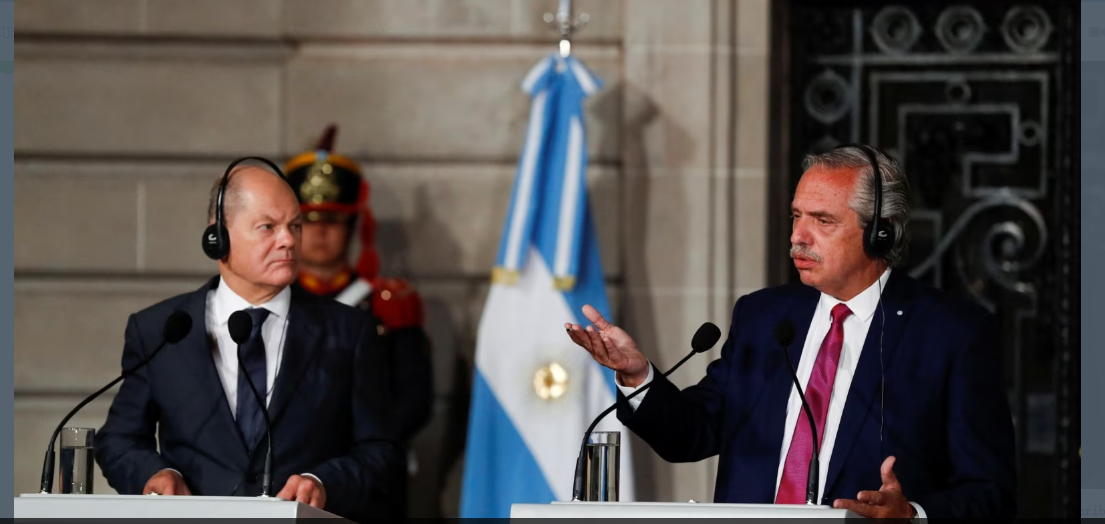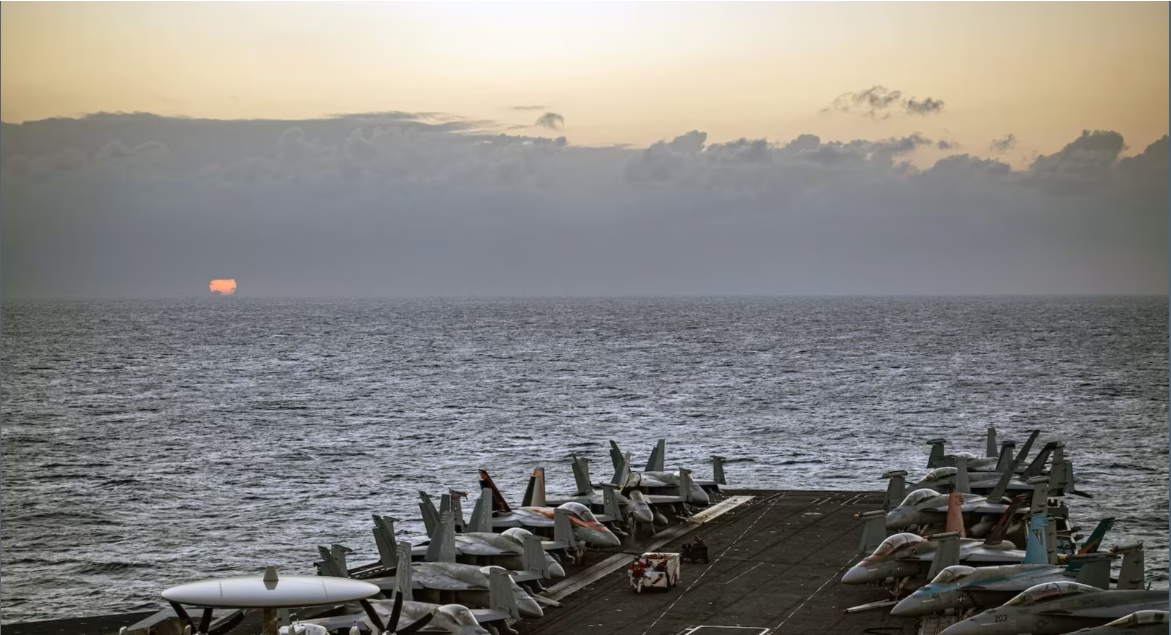WASHINGTON:
German Chancellor Scholz on Saturday urged a quick end to free trade agreement talks between the European Union and the Mercosur South American trade bloc. The Argentine capital, Buenos Aires, was the first stop on his first visit to the region. Seeking to reduce the German economy’s dependence on China, diversify trade, and strengthen ties with democracies around the world, Scholz is visiting Argentina, Chile, and Brazil, all of which are amid the region’s new “pink tide.” Leftists who came to power.
Berlin wants to reduce its dependence on Chinese minerals, which are key to the energy transition, making resource-rich Latin America an important partner. The potential for renewable energy output in the region is another attraction. “The potential to further deepen our trade relationship is enormous, and the possibility that the EU-Mercosur deal could bring is particularly significant,” Scholz told a news conference with Argentine President Alberto Fernandez.
Fernandez accused European protectionism of holding back the deal, which was reached in principle in 2019 but failed to be ratified by each country’s parliament. Brazil must take concrete steps to stop the dramatic destruction of the Amazon rainforest, the EU ambassador said. Berlin hopes such concerns can be put to rest after the election of Brazilian President Luiz Inacio Lula da Silva, who has promised to overhaul Brazil’s climate policy. Scholz will meet with him on Monday before his three-day visit ends.
Russia’s invasion of Ukraine, which has sparked an energy crisis in Germany due to its heavy reliance on Russian gas, has raised awareness of the need to reduce economic dependence on authoritarian states. Germany needs to embrace some industries it has been shying away from if it is to reduce its reliance on Chinese minerals, a German government official said on Friday.
“Lithium mining, for example — it’s a challenging task, especially in terms of environmental and social standards,” the official traveling with Scholz told reporters. Argentina and Chile sit at the apex of South America’s “lithium triangle,” a region that holds the world’s largest trove of ultralight battery metals.
About a dozen business executives – including the heads of Europe’s largest copper producer Arabis and energy company Wintershall Dea – accompanied the prime minister on the visit. Fernandez said he and Scholz discussed the possibility of attracting German investment in Argentina’s vast shale gas reserves, lithium deposits, and green hydrogen production.
For example, a consortium including Wintershall Dea announced in September that it would invest about $700 million in a gas project off the coast of Argentina’s southernmost tip, Tierra del Fuego. “Argentina has the potential to supply energy to Europe in the long term,” the company’s chief executive, Mario Mehren, said in a statement. (This article is based on a Reuters report.)






nice content
Gold's Value Declines Drastically - News Nation Wise